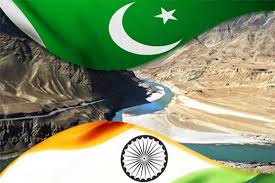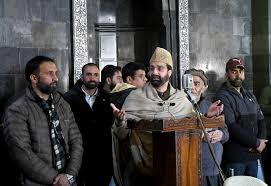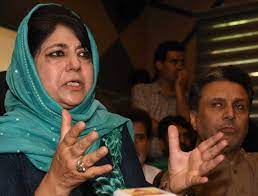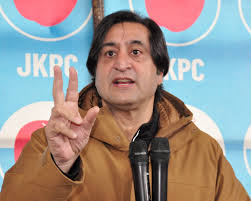 The World Bank (WB) has announced a pause in arbitration between Islamabad and New Delhi on the matter of the two dams being constructed by India, calling on both countries “to consider alternative ways to resolve their disagreements.”
The World Bank (WB) has announced a pause in arbitration between Islamabad and New Delhi on the matter of the two dams being constructed by India, calling on both countries “to consider alternative ways to resolve their disagreements.”
In the aftermath of rising cross-border tensions following the Uri army base attack and an Indian surgical strike, Prime Minister NarendraModi in November threatened to stop honouring the Indus Waters Treaty and block the flow of water into Pakistan.
India is constructing two hydropower projects on the Chenab and Neelum Rivers in J&K. Pakistan has objected to the construction of the 850 MW Ratle (on Chenab River) and 330 MW Kishanganga (on Neelum River) hydropower schemes, saying that both projects would have adverse impact on the flow of the Chenab and Neelum rivers.
Both countries had initiated separate processes in the WB under the Indus Waters Treaty (IWT), with India requesting the body for appointment of a ‘Neutral Expert’, and Pakistan calling for the appointment of the chairman of the Court of Arbitration.
The WB explained the pause saying: “Both processes initiated by the respective countries were advancing at the same time, creating a risk of contradictory outcomes that could potentially endanger the Treaty.”
World Bank President Jim Yong Kim said Pakistan and India should look to resolve the conflict mutually and within the bounds of the IWT.
“This is an opportunity for the two countries to begin to resolve the issue in an amicable manner and in line with the spirit of the treaty rather than pursuing concurrent processes that could make the treaty unworkable over time,” he said. “I would hope that the two countries will come to an agreement by the end of January [2017].”
“Pausing the process for now, the Bank would hold off from appointing the Chairman for the Court of Arbitration or the Neutral Expert – appointments that had been expected on December 12 as earlier communicated by the Bank,” the WB statement said.
The WB has sent letters to the finance ministers of Pakistan and India to apprise them of the decision taken to “safeguard the Treaty”.
Pakistan has acknowledged receiving the WB’s letter with officials in the Finance Ministry saying they have briefed the Ministry of Water and Power on the matter.
The water and power ministry has in turn asked Pakistan’s Commissioner for Indus Waters Mirza Asif Baig to take up the matter of the two dams with India.
Earlier in November, the WB urged India and Pakistan to agree to mediation in order to settle on a mechanism for how the IWT should be used to resolve issues regarding the construction of the two dams along the Indus river system.
The IWT is seen as one of the most successful international treaties and has withstood frequent tensions between India and Pakistan, including conflicts. The bank is a signatory to the treaty.
The treaty sets out a mechanism for cooperation and information exchange between the two countries regarding their use of the rivers, known as the Permanent Indus Commission which includes a commissioner from each of the two countries.
It also sets out a process for resolving so-called “questions”, “differences” and “disputes” that may arise between the parties.






